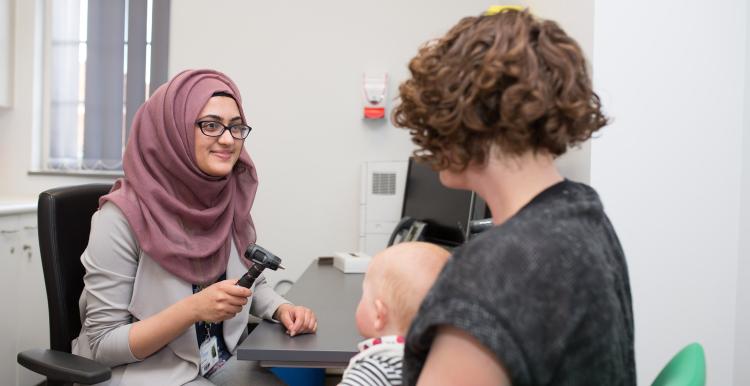Preparing for a medical appointment

When being offered a treatment or making a medical decision consider these questions…
- Benefits - what are they?
- Risks – what are they?
- Alternatives – are there any other options to consider?
- Instinct - what does my instinct tell me?
- Nothing - what about if we do nothing?
- Stop & think. Do I need more time? Do I need more information or for the information presented in a different way to make an informed decision?
Other useful questions to ask could be
- Has the health care professional read my medical notes and are they aware of any other medical conditions?
- Who do I contact if I need more information or to ask questions?
It may not be possible to ask all these questions during the appointment and some may be better considered beforehand. Consider writing down the important questions beforehand and making a note of the answers so you can think about them later. Ultimately it is a tool to help you gain the information you need to make decisions that are right for you:
Remember each question with the words
BRAINS Healthwatch Warwickshire
For more suggestions of how to make the most of your GP appointment visit our article:
10 top tips to get the most out of your GP appointment | Healthwatch Warwickshire
Or visit the The Patients Association website
Personalised Care
Personalised care involves choosing tests and treatments based both on the health care professional’s knowledge, and also taking into consideration your individual preferences, beliefs and values. It makes sure that you understand the pros and cons and possible consequences of different options through discussion with the health care professionals before making a decision.
Benefits
- It allows people to discuss and share information. This makes sure people have a good understanding of the benefits, harms and possible outcomes of different options.
- It empowers people to make decisions about the treatment and care that is right for them at that time. This includes choosing to continue with their current treatment or choosing no treatment at all.
- It allows people the opportunity to choose to what degree they want to engage in decision making. Some people prefer not to take an active role in making decisions with their healthcare professionals.
You can read more about personalised care here
You can read about the benefits of this approach here
Further information
NHS England: Shared Decision Making
NICE: Patient decision aids for specific conditions
Choosing Wisely – Resources in both English and Spanish Additional Materials for Patients (choosingwisely.org)
Choosing Wisely resources for specific conditions
